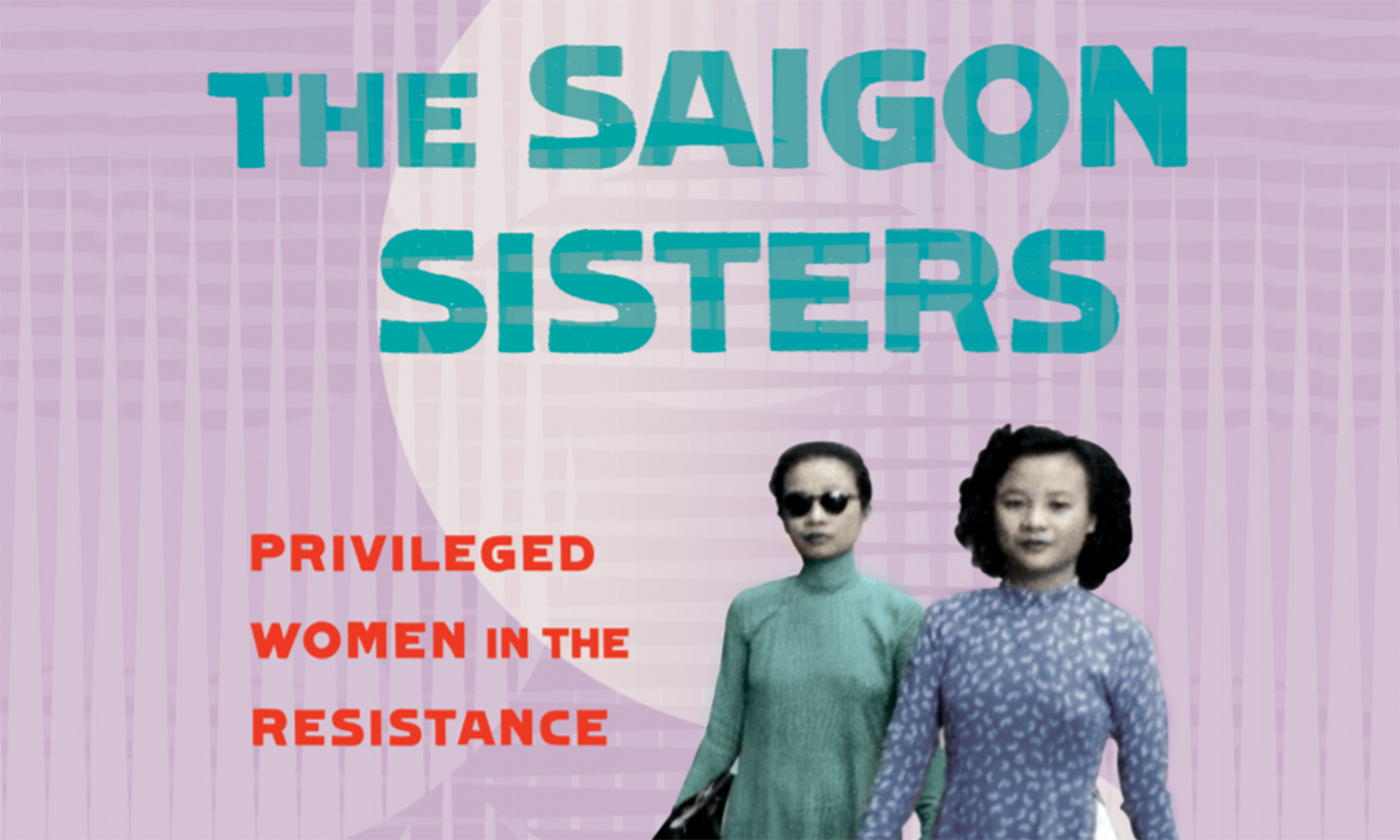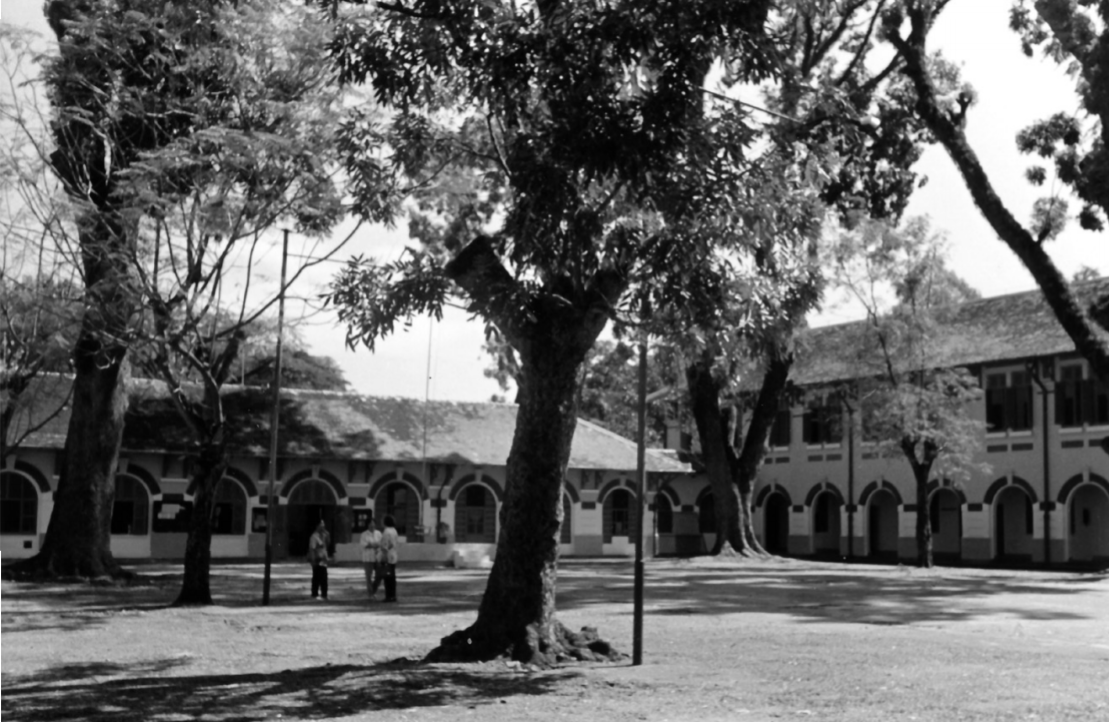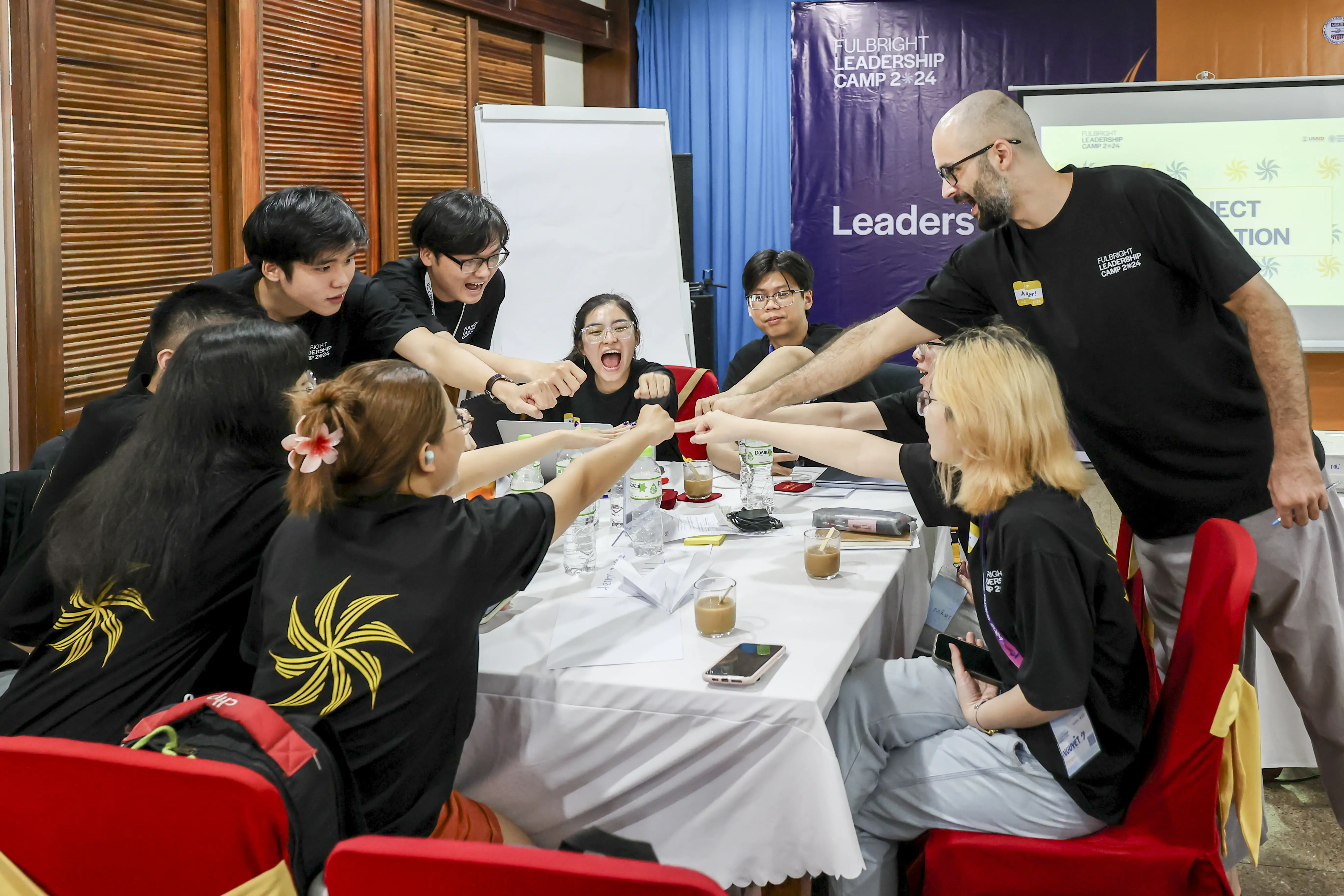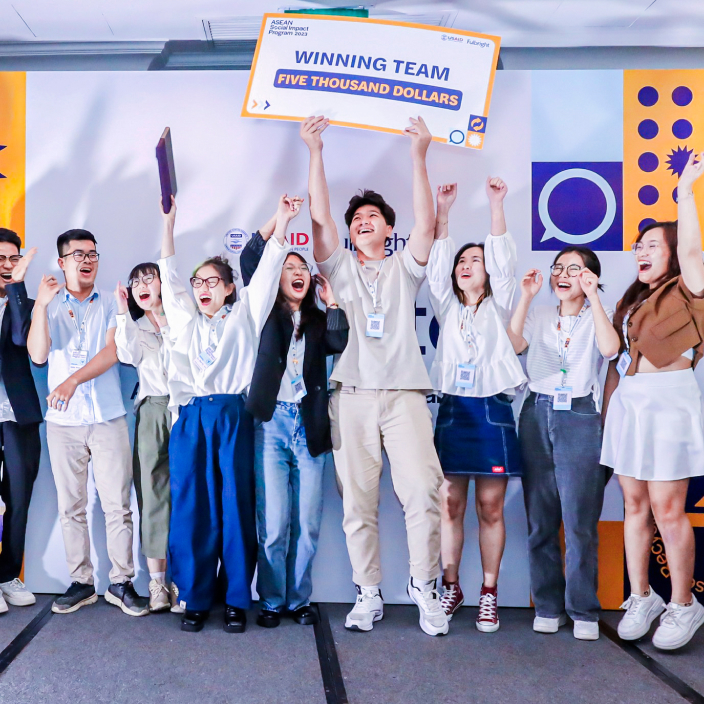
Patricia D. Norland, the author of “The Saigon Sisters: Privileged Women in the Resistance”, is a former US diplomat among very few Americans who obtained visas to visit Vietnam in the 1980s. From a brief but momentous encounter, Patricia ended up devoting over 30 years of her life compiling a rich and robust account of Vietnamese history as seen through the lens of the Saigon Sisters – 9 childhood friends who studied at an elite French school in Saigon but as adults chose to stand up for Vietnam’s fight for independence. In a virtual chat with Fulbright University Vietnam, Ms. Norland recalled her journey.
The story of extraordinary women
In 1988, Ms. Norland came to Saigon for the first time. Working for a small nonprofit organization called the Indochina Project, she had the chance to meet Nguyen Thi Oanh, a social worker whose powerful presentation of the post-war traumas and challenges moved her deeply.
To Patricia’s surprise, Ms. Oanh was a student at the Lycée Marie Curie, a highly selective French school that accepted only a handful of Vietnamese students at the time. Despite their upbringing, Ms. Oanh and her friends decided to not only remain in Saigon during the most heated years of the French Indochina War, but also actively engage in the resistance against French colonialists.
Such a revelation urged Patricia to start looking into the reason why this band of sisters, though they came from wealthy families and received Western education, sacrificed their safety and comfort to struggle for national independence. Especially when the majority of books about 20th-century Vietnam were about male soldiers, diplomats and journalists, she felt compelled to tell these women’s stories.
The book was not written in a chronological order; instead, it is a glimpse into the sisters’ incredible lives as told in their own narratives: Tuyen, the political leader of the group; Le An, a dancer who performed in a dance troop that entertained soldiers before battles; Sen, the “beauty queen” who trained and worked in the maquis; Lien An, who became a teacher in Hanoi and later returned to become a principal in Saigon; Xuan, an elegant lady who met and fought side by side with her husband in the maquis; Oanh, who returned to Saigon after the Geneva Accords in 1954 and helped run a women’s hostel for students and refugees; and the three siblings Minh, Trang, and Thanh, each with their own individual journey.
“When I first met these women and realized what they had done with their lives and how humble they were about it, I was convinced that they deserve to tell their own stories in their own words. It’s a sign of respect, and it was very important to me that their voices come through,” said the author.
Even though each of the sister had her own role in the revolution and they later walked very different paths in life, there were things they all shared that connected them and fueled their spirirts: the traditional Asian families they grew up in where they were taught to love the homeland, the anger towards colonial crimes, and most importantly, the liberal education they received at the lycée.

Courtyard of Lycée Marie Curie
“The lycée de is one of the main inspirations for rebelling. As Xuan, one of the sisters, put it, ‘At lycee Marie Curie, we received a liberal education. Teachers taught us in a multi dimensional international way. We learned about Russia by reading Tolstoy and Tchaikov, we became aware of the American Declaration of Independence. As we compared notes, we found that the French ideals were not for our people. In other words, we needed our own revolution’,” Patricia explained.
Fighting for a cause greater than oneself
As a former US diplomat, Ms. Norland used to help manage academic and cultural exchange programs, including the Fulbright scholarship. Sharing the same values that Senator Fulbright advocated, she believed that the essence of international education is to acquire empathy, the ability to see the world as others see it. It is also her purpose of writing “The Saigon Sisters”.
“I think mutual understanding helps us prevent conflicts and to promote peace. We’ve got to have that empathy and listen to more than just one side of the story. So I feel very strongly that we need to be doing more of that, stepping in other people’s shoes,” Ms. Norland asserted.

Ms. Norland during the webinar with Fulbright University Vietnam
Empathy is also the virtue that shone through the journeys of the Saigon Sisters. Being of a high status background, the women could have easily turned their backs to go study abroad and enjoy a comfortable life. Yet they decided to “get out of their French skirts and put on black pajamas”, join demonstrations, or even go into the jungle to support the maquis. From sleeping on the floor to eating unfamiliar food, the women sacrificed so much more than just personal convenience. They put their family, their children, their careers, and their own safety on the line to live with and fight for the people.
Patricia recalled: “I really love that the Saigon sisters, even though they came from such privilege, clearly, very much respect the peasants that they interact with in different ways, even in the jungle when they are with the monkeys. I think part of it is the empathy that they had seeing their people so subjugated by the French. I think it shaped them for a life of wanting to help their people, not just against the French, not just to survive the Americans, but all the way through. It’s an ingrained empathy.”
Published in 2020, “The Saigon Sisters” is commented to be a book of our times. While global challenges are creating a more and more disruptive and polarized world, it sends a vital message to the young generation about respect to others, giving back to the society, and selfless dedication.
“As we live in very stressful times between COVID and things like climate change, it’s good to hear very inspiring stories about women who dedicate their lives to something bigger than themselves. It’s fitting now under these times to hear stories of endurance, commitment, courage, and resilience,” Ms. Norland remarked.
Anh Thư









